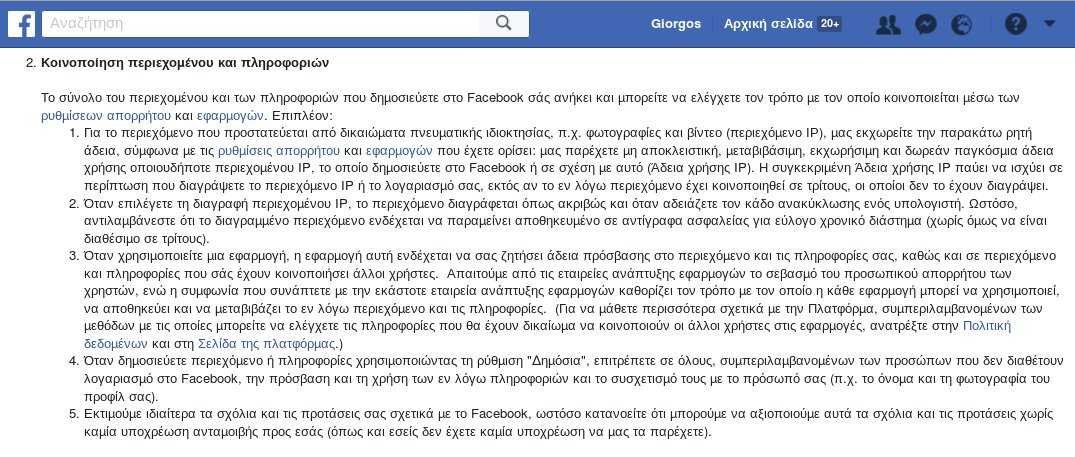Have you noticed non-permission posts on Facebook? The question concerns many people again and again. When you post a photo, or something else on social networks, who owns the copyright? Facebook or Twitter can do what they want with it picture your;
Who has the copyright on photos, videos, and text that you upload?
Anyone who pulled the photo or video originally, or who had the idea and wrote the text. In simple terms, because you publish and are original (by you), photo, video or text, you own the copyright.
If you post other photos or videos, you do not have copyrights. It must be something you created.
The copyright is not the same as the publishing license
It is an important distinction that we all need to understand. Copyright concerns ownership. It enshrines your property on something you've created.
With this property, you can decide where and how and by whom to publish any copyrighted work (online or offline). You can post it yourself, or you can give others permission to publish it. The Copyright.gov states detailed obligations and rights for the matter.
This is what social networks also use. Although you have the copyright for your text, photo or video, you get substantial and extensive licenses for where and how you can post your work.
What happens to social networks, Facebook etc?
When you subscribe to any social network, you agree to certain terms of service. Like everyone, so you did not read the endless list of the Mountains, but they describe everything about copyright.
For example, conditions of use of Facebook:
 Let's say very soon that you gave Facebook permission to do almost everything you want with your photos, videos and texts. . Similar terms of service include Instagram, Twitter and many others.
Let's say very soon that you gave Facebook permission to do almost everything you want with your photos, videos and texts. . Similar terms of service include Instagram, Twitter and many others.
In fact, Twitter also includes a specific paragraph to allow your tweets to play in other media, so if another page incorporates your tweet, the company is legally covered.
What does "non-exclusive, transferable, sub-licensed, without rights" mean?
Facebook, Instagram, Twitter and other social networks use this terminology in their terms of use. They are very specific words: "non-exclusive, transferable, sub-licensed, without rights".
What does the poet mean to say:
Non-Exclusive or Non-Exclusive: You can license an image to other people for a fee. So if you have the photo at a very high resolution you can sell it online.
Transferable or Transferable: It is the license you give to Facebook. Once you've given Facebook permission to transfer your content to others. It's something that scares the copyright owner, of course with the following:
Sub-Licensable or Sub-Licensing: Instagram can not only pass on your own license to use your photo but also sell a sublicense license!
Royalty-Free or Non-Rights: Even if you sell Twitter on your photo, you will not get a dime, you see, you gave them free rights.
In other words, social networks can do almost anything they want with your photos, videos, and any text you post.
If you post a non-grant, can you stop Facebook?
No. Facebook is free to do whatever it wants under the above rights.
It's one of the most common misconceptions about Facebook. We've seen multiple publications like:
"I do not give Facebook or any Facebook-related entities permission to use my images, information or posts, either in the past or in the future. With this statement, I warn Facebook that it is strictly forbidden to disclose, copy, distribute or take any other action against me ".
In fact, Facebook is trembling and it stops directly from dealing with your content!
If you clicked on the "I agree" that exists in the terms of Facebook services when you registered on the social network, you were waived of any such right. To renegotiate these terms, you will need to negotiate with Facebook attorneys. Such a post is not legally valid.
What to do;
Do not panic.
Most of this legislation is a way to cover social networks from frivolous lawsuits. It also provides Twitter and Facebook with coverage for smaller things, such as a newspaper that refers to President Trump's tweets. These terms protect each company.
Can newspapers and other media use my data?
Here things get interesting. There is a landmark case for newspapers and photo agencies that have posted a photo of Morel from Twitter.
Morel was the photographer who covered the earthquake in Haiti. Some of his photos ended up on Twitter and someone else shared them online without crediting the photographer. AFP and Getty Images (which supply images to the agencies news) published these photos, which in turn appeared worldwide. Morel, of course, sued AFP and Getty Images.
Ultimately, the judge ruled for Morel. OR court decision made clear that AFP and Getty were wrong. They did not request Morel's permission to post or republish his photos. It did not matter that AFP found the pictures from someone else who published them on the internet.
The license is crucial
If your original work is sold commercially or used elsewhere without your permission, you can take legal action and win the case. This is why some bloggers request permission to republish for material which exists online.






Good evening. I am working on the photorealistic drawing. I recently took 2 photos of a tangible Instagram with content. 2 models of women half naked, and I captured them on paper with a pencil. Does he have the copyright and make reports absent or do they report me sexist content?